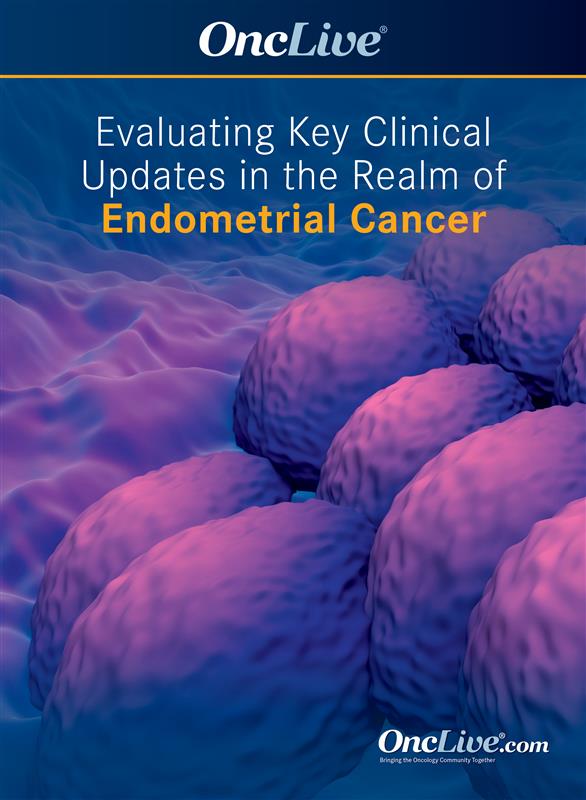Commentary
Video
Supplements and Featured Publications
Dr Slomovitz on the DUO-E and AtTEnd Trials Investigating Immunotherapy in Endometrial Cancer
Author(s):
Brian M. Slomovitz, MD, discusses the phase 3 DUO-E and AtTEnd trials investigating the use immunotherapy in endometrial cancer, as presented at the 2023 ESMO Congress.
Brian M. Slomovitz, MD, director, Gynecologic Oncology, co-chair, the Cancer Research Committee, Mount Sinai Medical Center, professor, Obstetrics and Gynecology, Florida International University, discusses the phase 3 DUO-E (NCT04269200) and AtTEnd (NCT03603184) trials investigating the use immunotherapy in endometrial cancer, as presented at the 2023 ESMO Congress.
DUO-E assessed the efficacy of durvalumab (Imfinzi) plus chemotherapy followed by durvalumab and olaparib (Lynparza) maintenance for patients with advanced newly diagnosed or recurrent endometrial cancer who were naïve to systemic therapy, Slomovitz begins. Patients received either chemotherapy alone, chemotherapy plus durvalumab, or chemotherapy plus durvalumab and olaparib.
Results showed notable benefit with the combination of chemotherapy, a checkpoint inhibitor, and a PARP inhibitor for this patient population, Slomovitz reports.Patients who received either durvalumab-containing regimen experienced an improvement in progression-free survival vs chemotherapy alone. Hazard ratios (HR) for the durvalumab arm vs the control arm was 0.71, while the HR in the durvalumab plus olaparib arm was 0.55. This corresponded with 29% and 45% reductions in the risk of disease progression, respectively. Moreover, a trend toward improved overall survival (OS) with the durvalumab regimens was observed, although these data were not fully mature at the time of the interim analysis. Notably, patients whose disease was mismatch repair (MMR)–proficient experienced a more pronounced PFS benefit with the addition of olaparib to durvalumab.
The AtTEnd trial investigated the efficacy of adding atezolizumab (Tecentriq) to carboplatin and paclitaxel in the same patient population. This study also yielded positive results, Slomovitz details, showing that atezolizumab plus chemotherapy elicited a statistically significant improvement in PFS vs chemotherapy alone. Notably, PFS benefit was pronounced in a subset of patients with MMR-deficient (dMMR) tumors, with median PFS increasing from 6.9 months with placebo to not evaluable in the dMMR population after a median follow-up of 26.2 months. As seen in DUO-E, this interim analysis of OS also suggested a trend favoring the atezolizumab combination.
Ultimately, these studies confirm that the addition of immunotherapy to chemotherapy regimens is an effective and viable approach for patients with advanced endometrial cancer, Slomovitz states. However, more research is needed to fully understand and optimize these regimens, he concludes.










